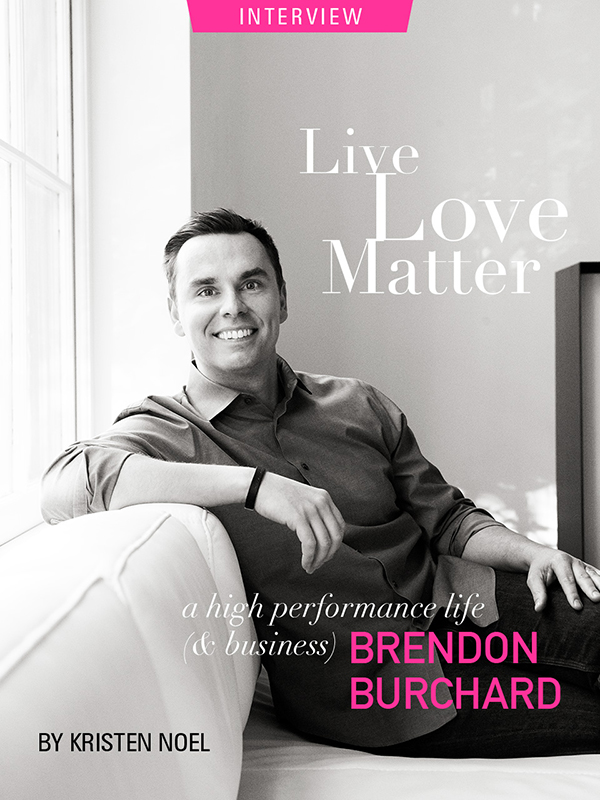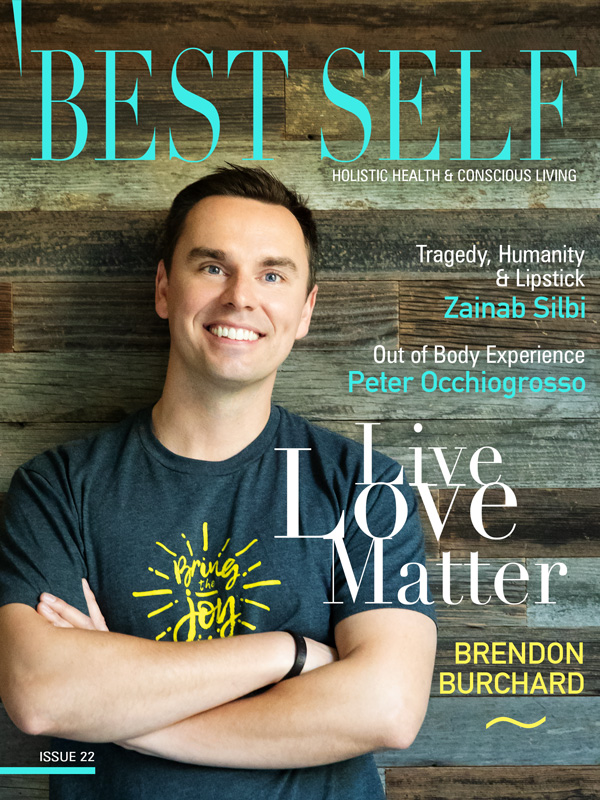Brendon Burchard
Live, Love, Matter
Interview by Kristen Noel
October 15, 2018, Portland, Oregon
Photographs by Bill Miles
I think we all want to touch the rim of our greatness, but we’re going to need taller ladders.
Brendon Burchard
Kristen: Brendon Burchard is referred to as one of the most influential leaders in the field of personal growth and the top marketing trainer in the world. He is a #1 New York Times best-selling author of 6 books: High Performance Habits, The Motivation Manifesto, The Millionaire Messenger, and Life’s Golden Ticket, to name a few.
He is the star and executive producer of the #1 self-help series on YouTube — where his videos have been viewed over 250 million times. His podcast, The Charged Life (now The Brendon Show), debuted at #1 on iTunes and remained in the Top 10 in its category for over 100 weeks. Brendon’s live webcasts continue to set records and as a pioneer of online education — 2,000,000+ graduates have gone through his online courses or video series.
Brendon! Thanks for bringing the joy! [referring to his t-shirt]
Brendon: Thanks for letting me wear it.
Kristen: Thank you for sitting down with Best Self Magazine today and for welcoming us into your motivational workshop here in Portland.
Brendon: We’re really thrilled to have you here!
Kristen: This beautiful space is like a dream manifested, right?
Brendon: It is. Most of my career is like that: I dreamt of the studio, dreamt of the books, dreamt of the workshops, dreamt of doing these types of things…
Kristen: …dreamt of going to work in a t-shirt? [laughing]
Brendon: You know, I never did that. I think this is actually the first interview I’ve ever done in a t-shirt. I think part of it is because when I started in the industry I was way younger than most people. I was kind of corporate — very buttoned up, very dressed — so that I’d have more credibility, or so I thought. Now, no one cares. Half the time if you dress professionally, people take you less credibly in our space, because they say, you’re not being authentic. But I felt like the whole ‘best self’ industry needed a little bit of professionalism.
When I started in 2006, seminars were kind of shady. These people didn’t really have businesses. They had a name, or they had a book, but I recognized that they could be building empires in this space.
At the end of the day, what we are doing is really just very enlightened customer service. We’re trying to figure out what does the customer really need, where are they stuck, where are their hopes and aspirations, what would really drive them to deeper motivation or help them achieve higher performance.
I felt like somebody could really build something if they approached it like a business, not just, “I’m an author,” which was what I did at the very beginning — and I was failing. All I could see was the book and when the book came out and it didn’t do as well as I thought it would, I was crushed. Also, I had no Plan B. I didn’t have a business. I just had a book.
So, a lot of what manifested over these last 10 years happened because I just kept going and asking, Okay, well what’s next? I also never get bored with it because I feel like everything is always new, like this interview.
Kristen: When I see you sitting here with this t-shirt, it feels like you’re settling into this version of yourself. We’re big fans. Your work and everything that you’ve created has planted seeds in our business.
What I’m most interested in, aside from these tremendous accomplishments and staggering statistics and benchmarks, is the thread that runs through Best Self Magazine, the golden thread: the story.
I want to have a soul chat with the man behind the message.
Brendon: Who is he? [laughing]
Kristen: I think his name is Brendon something? [laughing] You’re the ‘maestro of motivation with mission’.
Brendon: Thank you.
Kristen: There are a lot of people out there who are driven. There are a lot of people who want to make a lot of money, but there aren’t as many who get the formula — that you can be driven, you can make money, and you can also have impact. So, I’d love for you to talk to us about where this all came together for you.
Brendon: For those who don’t know my story, I had a car accident when I was a 19-year- old kid. I rarely talk about it in these words, but for me it was like mortality motivation. It was that moment when you realize that life is precious — and I got that at 19. I think that was my greatest blessing. Most people don’t get that until they’re much older.
Mine was very hard and very dramatic. I’d been suicidal up to that point of the car accident, because the first woman who I’d ever dated, fallen in love with, and thought I was going to marry — cheated. I fell apart and with it my life and identity fell apart, too. I was in college at the time. It was such a horrible, visceral two years of misery — and then the accident happened.
There was a moment when I’d escaped the car; we had rolled several times and I was standing on the hood. I thought I was going to pass out. When I looked down and saw this blood on my body, I literally had this moment when I believed energy was leaving my body. Suddenly, I thought, Did I matter? And I hated the answer to that.
Long story short, obviously I survived. Just weeks later, reflecting on that moment, I thought, OK, is that a question I’m going to ask at the end of my life? And I realized it was. So, at 19, I started asking, how can I matter? What does that mean to me? What does it mean to contribute? What does it mean to live with purpose?
I obsessed about that for years, and I think that helped so much because I didn’t start in this industry at that point. I didn’t start teaching and training people at high levels for another 14 or 15 years.
Kristen: But you were planting seeds.
So, what about after the car accident?
Brendon: I finished college at the University of Montana, went to grad school for organizational communication, focused on leadership then got a corporate job at Accenture. At the time it was the world’s largest consulting company; there were 86,000 employees when I started. I was this country bumpkin kid from Montana who moved to San Francisco and was terrified. I’d never been to a big city, I had no idea how to adjust to it. All my money went to rent in a really crappy apartment…
Kristen: Welcome to San Francisco. [laughing]
Brendon: It was brutal. I was clueless.
That company was growing bigger and bigger, and I was feeling less and less of an intimacy to the work. I would create a presentation, hand it to somebody, they would deliver it, but I never knew if it made a difference. Did I matter?
There’s a true alignment between connection and contribution.
If you don’t feel connected to the work and its impact on people — you won’t feel the contribution. I really got that because I was lost in this big company, and I thought, I want to make a difference in people’s lives, but I want to see it. I want to see their eyes light up. I want to stand in front of that room, ask the questions, do the coaching, facilitate that process. I don’t have to be the expert, but I’d studied enough philosophy, psychology and neuroscience — I knew the questions to ask people.
Asking the right questions of people unlocks the doors, and creates breakthroughs. Like these books I’ve written, it’s less about me telling clients to go out and do this and more like presenting research and then asking, how are you going to approach it?
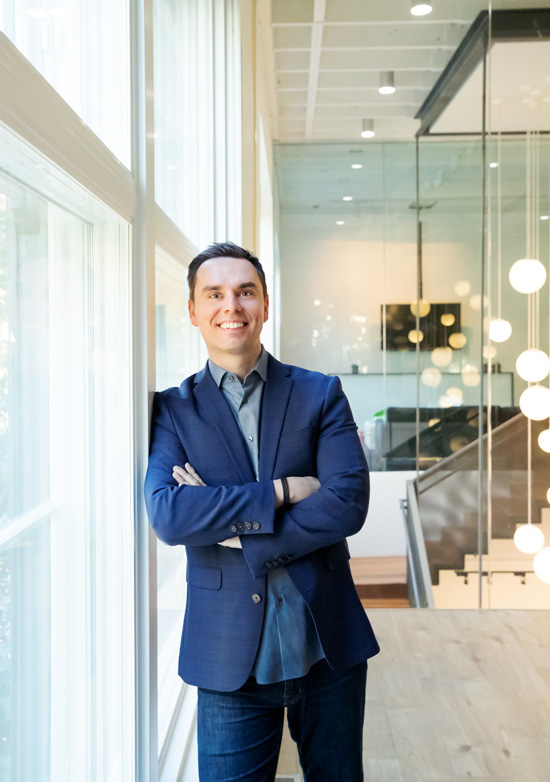
Kristen: You seem to have this insatiable appetite and you have so much energy. You had me at your mantra: “Live. Love. Matter” when you said, “The real story is that I’ve woken up every day for 19 years with a solid and soul-driven intention to fully live, love, and matter.” Add to that, you studied leadership and high performance for two decades and you have read a book a week for that entire period of time…
Brendon: 22 years now.
Kristen: …as well as completed a personal challenge every month, conducted hundreds of interviews, given thousands of talks, had world class clients and mentors, and you travel 75 days a year.
So, are you insatiable?
Brendon: I think so. Part of it is curiosity. I’m just so curious about human behavior, and let’s face it, you’re never going to finish the book on human behavior. I’m never going to have that perfect coaching moment, and think, Oh, I know everything about people.
Human behavior is so individualized, personal, emotional, and contextual — it’s so much fun to learn about people. Curiosity is really where the insatiability lies. Again, when I came into personal development after having been a kid who was suicidal, so much of it didn’t speak to me. How many books can you read that just say, “Be grateful. Be nice to people. Be yourself.”
Kristen: “Think happy thoughts.”
Brendon: …but those just get you in the game. I wanted the advanced stuff. I was like, Wait, wait, wait. There are really happy people and they sustain the happiness. There are really wealthy people and they sustain the wealth. There are really productive people and they can do it time and time again, from field, to field, company to company. I recognized that there were genuine high performers — and that consistency and longevity should matter to people. I was thirsty for more.
That’s why I love working with an Olympian, or someone who’s at their highest level, because I want to know — what did they do? They’re not doing what everyone else is doing. They’ve got that edge, they’ve got something unique. I want to touch that rim. I think we all want to touch the rim of our greatness, but we’re going to need taller ladders.
Kristen: Yes!
How do you keep it fresh and inspired? How do stay interested in questions? Because there comes a point, and I’m sure you’ve seen it time and time again with successful people — when people get jaded. After all of these years, you have a playful curiosity about you, a whimsical nature. It’s like I’m sitting here with a little boy — which honestly, is quite refreshing. Your energy is palpable.
So, how do you keep that alive?
Brendon: It’s super difficult, and I agree that a lot of people get jaded, and I appreciate the compliment. However, have you ever had someone compliment you, but you’re hearing another track in your head?
A month ago, I did a four-day seminar with 2,000 people. Then I traveled to two different states to speak. Afterwards I went to Puerto Rico to set up some new companies that we started down there to support the community after the hurricane. Then I went to New York and delivered a mastermind for four days. I’ve had five hours off in the last 6 weeks and I spent that time with my nephews in New York City. I flew here last night for this. So, when you’re saying, “He’s so energized,” I’m thinking, Gosh, I’m so bummed, I’m so tired for the interview. I’m so sorry. To me, this is powered down.
Back to your question, I think most people get jaded in the industry because they’re actually in the selfie industry not the service industry. They get bored with themselves.
What happened in the thought leader or influencer industry, for example, is that the industry was driven by people just telling their story, taking pictures of themselves and writing about their thoughts — but they were never actually in service. They haven’t coached individuals over a series of years. They haven’t trained people and tracked their progress over time. They’re giving advice without ever having the benefit of actually being in the weeds, being responsible for their long-term transformation.
This is my 12th year in that position with the highest-level people in the world, where I am responsible for their results year after year. If you’re in the game of service like that, you never get tired.
We all get bored with ourselves. How many times could you tell your story?
The Motivation Manifesto is one of my favorite books. There’s nothing about me in this book. This is a book about humanity and about us. It’s about our story as humans as we seek personal freedom. Also true with Life’s Golden Ticket — it’s fiction. Not one story about Brendon Burchard. People ask me, “Why don’t you write about yourself?” Because I’m bored with myself! This is about other people, and I think that’s what is really important.
So, today I’m tired physically. I’ve been working for a month and a half straight, but every one of those days was in service to other people. When people realize that they need to be their best self for somebody else, they don’t get jaded. For example, I know that someone’s going to watch this, and something will click for them. Maybe it’ll be something you say or I say — something might resonate, and they’ll go, you know what? I need to be on my A-game for my family right now, or for my team or for my career.
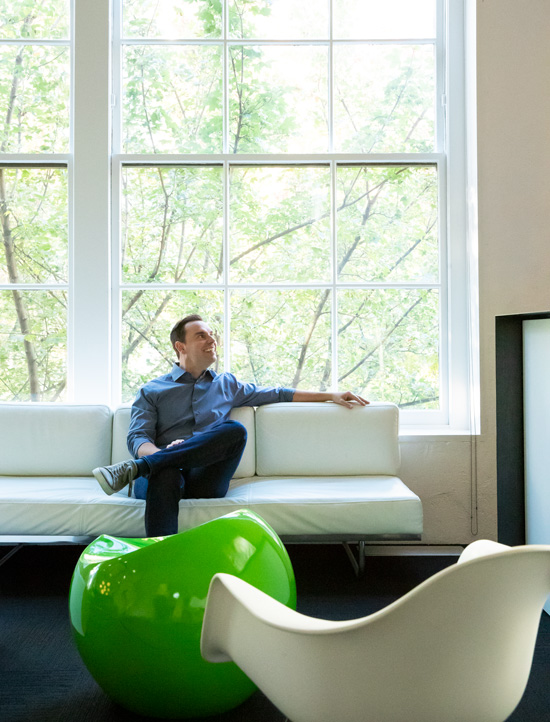
When you’re just trying to get your six-pack abs for your selfie, that’s when you can find yourself sitting on the couch afterwards being miserable. That’s why you have all these miserable millionaires, billionaires, celebrities committing suicide, because sometimes their striving was only tied to self. And if your striving isn’t tied to real service, to leadership, to contribution, to a desire to help other people — you’ll completely fatigue out on that.
Kristen: That’s such a critical component. When did you realize you needed to be in service?
Brendon: It was immediately after my accident. Remember, I had been the miserable, suicidal kid, had the accident, and then the questions came forth: Did I live fully, did I love openly, and did I matter? Suddenly, I recognized I wanted to change. I got inspired to read books, listen to tapes, and study programs.
Every day and every night, I was aiming myself with intention. And when I go to bed now, as with the last 22 years, I ask, Did I live today? How? Did I love today? How? Did I matter today? How? It becomes an intention.
You can’t live purposely if you don’t know the questions you’re going to ask yourself at the end of your life. You just can’t. It’s impossible to live a purposeful life without at least having some idea of what the purpose is.
At the end of your life you will have a moment of cognition. You’re going to think about your life, and you’re going to ask questions to evaluate whether or not you were happy with that life. I tell people, “Know what the questions are — and live into them — so when you answer the questions, you’re happy with the answers.”
Kristen: This is why I wanted to have this chat with you today. I know that people are constantly picking your brain. They want strategies, and they want ideas for their businesses — not recognizing that this is the juicy stuff that will help them live into their lives and businesses in a completely different way.
You also keep it real. You said, “The untold story, perhaps, is that I’m just human. I have tough days, I’ve written plenty of garbage, shot hundreds of bad videos, felt terrified back stage, bombed at promotions, failed and failed, and joyously failed on my surprising journey coming out of nowhere. The path to mastery is forged with struggle.”
Why do you think people connect to you?
Brendon: I think it’s because I honor the struggle. A lot of people in the influencer space just want to say, be happy, be you, don’t listen to anybody else, or don’t give up. But the reality is, they often don’t recognize the real struggle people go through.
Growing up, our family was near the poverty line…it was really tough. An Irish mining town that had been economically depressed for a century, mom and dad raising four kids with nothing, in the direst of circumstances. I’ve lost friends. I’ve been through so much turmoil in my life, and I recognize that’s true for everybody else, too. Most people are trying to be their best selves — even if they don’t have the skills for it — but they know that it’s there.
Every human has a sense of their possibility. It might not be there every day, but once in a while in a dream, or once in a while with a journal and a cappuccino they come up with this, “Oh my gosh.”
The reason why people connect is that I make the struggle okay. Of course, it’s difficult. Honor that. People bemoan the struggle and that’s why they never have the dream. They’ll say, “I have a dream,” but then inconvenience or rejection comes up and they moan, “Oh, this sucks,” complain, complain, complain.
Kristen: Or they think they’re going for it, but they don’t really go for it.
Brendon: So, you end up in this situation where a lot of people are on the path to their dream, on the path to their potential — but because they hate the struggle — they stop the journey. It happens all the time. People don’t realize they do that. As soon as you pour hate on something, it dies.
Honor the struggle. Let the struggle forge the best character in you. Anticipate that there will be struggle, and allow it. Use it to make yourself stronger, but also bring the joy. Know that it’s going to suck, know the days are going be long, know you’ll be tired, and then will yourself, teach yourself, trigger yourself, condition yourself to keep showing up.
When people come to my house, they’ll ask, “Brendon what should I bring?” I say, Bring the joy. “Should we bring wine?” No, bring the joy. We’ve got the wine. [laughing]
Kristen: I’d let them bring the wine. [laughing] You can bring the joy and the wine!
Where do you struggle?
Brendon: I struggle the most with the busyness of it all, just like anybody else. The last two months have been the busiest of my career, but that’s also by choice. I think what’s made my career endure is that I still feel like I’m just starting — but 12 years at this level has been a lot. It’s very easy to burn out. I’ve protected my time even as I say, Wow, it’s been such a busy last two months. That’s super rare for me. In general, I have a tremendous amount of time off, a tremendous amount of free time in the mornings to get my mind together, to do my morning routines.
Kristen: What’s ‘tremendous’ for you?
Brendon: I never take a call or a meeting before 1:00 p.m. Ever.
I take 17 weeks off during the year. Some people might not consider it ‘off’, but I’m kind of like a nutty professor wandering around my house researching, or thinking about something, or creating new content.
Kristen: Fueling the creative juices.
Brendon: But then I have busy months like this where we’re building up to product launches and it’s all hands on deck. What most people don’t know about me is that we reached 100+ million video views, and 2 million subscribers and students before I ever hired a marketing person. I designed these book covers. I marketed each of these books to hit The New York Times list. I wrote all the emails. Posted all the videos. Did all the blogs. Created all the quote cards. Shot every photo you ever saw. I literally did it all by myself, and I say that not to brag; I say it because that was my art, and that’s what kept me fueled.
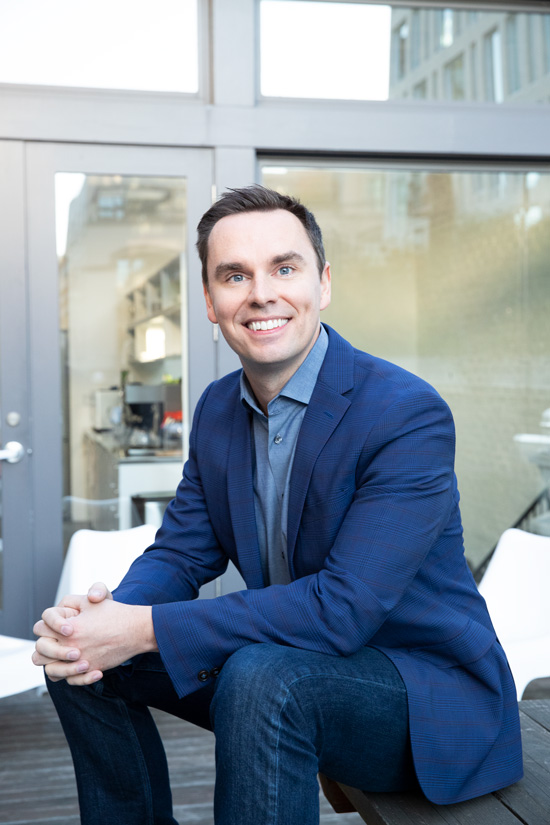
What I struggle with right now, as I’m building teams, is that sometimes I get further away from the art. I’m working harder, but it’s not as much fun. So, I always have to balance.
I don’t try to balance life, I try to balance contribution and creativity.
Kristen: Your books have incredible diversity, but are each written with total passion and total love for what they’re creating. It’s evident.
Keeping it real, let’s talk about The Motivation Manifesto, and what happened when you first tried to get it out there.
Brendon: I knew what I wanted to do with The Motivation Manifesto from the get go. A lot of personal development, self-help, and psychology had gotten very trite — it was all the story of the author, me, me, me, very memoir — and I was thinking, I don’t want to write about myself. But I also felt there was a revolution rumbling. This was 2012 and 2013 when I was writing this book, and I was on the road a lot. I was feeling what ended up becoming the 2016 election. I was like, Whoa, something huge is going on…there’s an undercurrent here. There’s a revolution coming. Something is not copacetic. Something’s going on that people aren’t vibing on.” I couldn’t tell what it was, I just felt like something was needed for that.
So, I went back and studied all the times in history when there were major revolutions. And I studied specifically what the leaders of those times were speaking about for the people.
When there’s revolution, where are people going? What’s it about? And it was always about freedom. Every revolution was always about freedom — whether it was the freedom to vote, or freedom to be represented, freedom from tyranny, or freedom to create a new life. I thought, Oh, the great quest of humankind is this quest for personal freedom. The ability to be fully ourselves and do what we want. To live our lives on our own terms.
I thought, I’m going to write this book, and I’m going to incorporate the rhetoric from those revolutionary times. I didn’t want to write a book that sounded like me; I wanted to create a piece of art. So, I started piecing this together and learning how to write like revolutionists did.
The first chapter is about the declaration of personal power, and it follows lockstep with the Declaration of Independence in the U.S. It sounds like it, reads like it, has the same sort of format. I was putting personal development concepts in there, but overlaying revolutionists’ rhetoric.
When I turned it in, my then publisher, who paid millions of dollars for this book, hated it. I mean the editor hated it. He was like, “What is this?! Where’s Brendon Burchard? Why are you writing like it’s 1776? It’s 2013, man!” He was absolutely freaking out. Total panic.
Long story short, after a lot of back and forth, they eventually said, “Listen, add more stories about you in this, and modern up the language, or it’s not publishable — and you’ll need to give us our money back.” I had a really long night reading back through it all and remained firm in my conviction that there was something there. I really felt it. Eventually, I went back to them and had to make a deal to get my rights for the book.
Then Hay House came along to do the distribution deal with me. We launched this book that the previous publisher turned down and made me pay for, the one who insulted the book and insulted me, who had literally written in the manuscript edges: Are you on drugs? WTF?
And after we launched the book, it spent 32 weeks on The New York Times bestseller list, number one! [high-fiving]
Kristen: That’s right!
Brendon: It just crushes it. So far, it’s the best-selling book of the century with ‘motivation’ in the title.
I wanted to make it feel like a Moleskin journal. We worked so hard on the font. Speaking of the founding fathers and revolutionary rhetoric, the font style is Benjamin Franklin’s first font from his print shop in Philadelphia. I love how much geekdom went into this thing!
Kristen: It’s beautiful. And it’s a fabulous backstory, because the reality is that there’s that pivotal moment when an author is standing on the threshold of being published — and would do whatever the publisher said in order to make that happen. That’s a really a crossroads. Not everyone could or would walk away from a million dollars.
Brendon: Yes. They have their dream and they put permission and approval into other people’s hands.
This one’s another good story about Life’s Golden Ticket — 19 publishers turned this book down, and only a couple of them would even take the time to write back to turn it down.
Kristen: You were tenacious. You are tenacious.
Brendon: Right?! The thing is, you just have to believe in your voice. You can take criticism, you can take constructive feedback, but at the end of the day it’s your voice, and to me, Spirit. God gave me that. It’s your voice, it’s your name. It’s your truth, you need to celebrate it.
I’ve been rejected my entire life, and that’s okay. I never expected otherwise. I never thought that I’d turn in the book and a marching band would come down the street. That’s why I say: Honor the struggle.
I anticipate that almost everything I’m going to do that really matters will be difficult. And if what you’re doing that really matters isn’t a little difficult, you’re not even at the edge of your potential yet. You’re in such a tight comfort zone, and most people don’t even know they’re not going for it. They’re going through the motions, but that always happens in the comfort zone. Going through the motions is always safety, and high performers and those who really achieve the highest level, don’t ‘go through the motions.’
Instead, they will a different level of consciousness into the moment, they challenge themselves to be more present, but they also acknowledge that everything is going be a little difficult, and that difficulty is going to make them sharper.
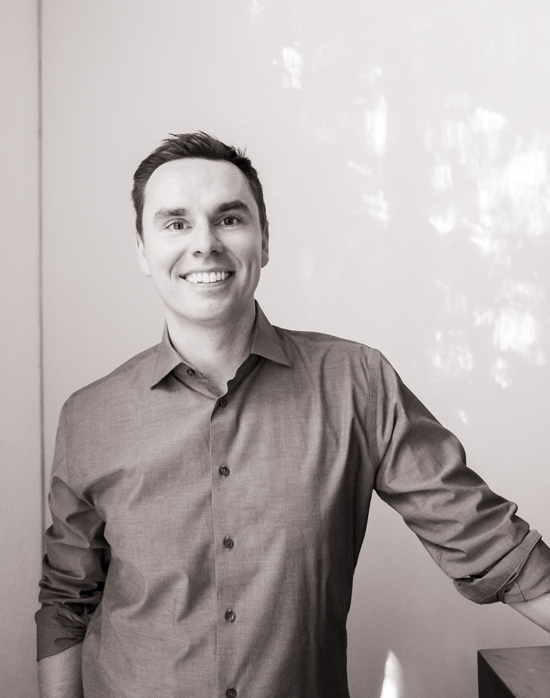
I knew those rejections were going to make me look at the book a little differently. Those challenging times when people said No were going to make me a better marketer. Those times when the promotion bombed were going to help make that next video a whole lot better.
I just took the lumps as learning; a lot of people take the lumps as reasons to quit.
Kristen: How many people wake up in the morning and say, “I want to have a shitty day with shitty outcomes?” But something happens on the way to the morning coffee, right?
Brendon: Yes.
Kristen: Moving onto your most recent book, High Performance Habits, you say, “With deep motivation and high-performance habits you can be extraordinary.”
What does it mean to you to live an extraordinary life?
Brendon: One thing is knowing that you are intentionally on your own path, that you feel a truth. Ordinary would be like everybody else. Extraordinary is that path that you are shaping that is yours. There’s something happening for you, and with you, and from you… and that’s extraordinary. As I got to know more and more successful people, when I asked them about what that was, it was always that their depth of motivation was different than other peoples’. But their habits were different, too.
I know a lot of people who are deeply motivated, have horrible habits, and never get ahead. I know a lot of people that have lots of great discipline and they’re perfectionists, but their motivation isn’t really rooted in their soul or their heart. They’re really good with checklists, but they’ve never felt the day, and they’ve never achieved something meaningful.
I think you have to have both: a deep motivation, and high-performance habits. If you don’t have both it’s really hard to get ahead and be extraordinary.
Kristen: How many years did you work on High Performance Habits?
Brendon: Three and a half years of research study. It was the world’s largest project of its sort ever done, with data from over 190 countries of basically the top 15% of high performers in tons of different industries. I did it in part because I wanted to see if I was full of crap.
Kristen: Were you?
Brendon: You know what, yes in some ways — and no in others. Most personal development people don’t have the guts to check themselves. They won’t run the analytical studies, they won’t do the critique, they won’t open up their stuff to criticism, and they won’t do the academic research to validate their suggestions. But I wanted to know: Have I been training people and moving the needle in a way that we can academically validate, or am I just spitting?
I also wanted to know what that difference-maker was around the world, because we have a global community. We reach so many people, and I wanted to make sure that what I think works here in North America, works elsewhere — so I wanted data.
Today we live in a world where if you are serving people, you must have insight beyond just what you think, beyond your personal story. I think a lot of what’s happening with influencers and on social media is a tragedy because we have people who are sharing their personal story, but they’re not willing to explore what else is working. They do no research.
Wait, you’re attempting to impact people’s lives, but you’ve never done research outside of, “Well I think it’s this way.” I think that’s irresponsible, and I think that’s why a lot of people got jaded with the industry, because ultimately, it’s just a bunch of people not willing to do the work.
Kristen: What was the juiciest nugget that came out of this research for you?
Brendon: We found that there were six habits that made the greatest difference towards long-term success. One of the juiciest pieces was that high performance and long-term success cannot be separated from personal well-being and social relationships. Meaning, there’s no such thing as long-term success without also taking care of your well-being and forming positive relationships.
People say, “Oh, it’s lonely at the top,” or “If you’re going to do this, then you’re going ruin all these relationships,” or “You have to burn out and give up your health to become successful.” They’re completely wrong. It is statistically impossible to achieve multi-year, high levels of success without taking care of your health and wellbeing, and without forming positive relationships. It’s literally impossible.
That’s great because it validated what a lot of us feel is true in our heart and soul, yet we still feel like we have to compromise. But success doesn’t have to bring compromise to your health or your relationships.
Brian Tracy was one of my mentors, and he said, “You know what? If you’re having success with a ton of compromise, you’re doing it wrong.” That was really validating to be able to go to corporate America, or major CEO’s, or major influencers, and say, hey look, you’re telling people to hustle and grind, and push out all these people in their lives and ruin relationships, or you’re telling people, just sleep five hours a night. That stuff ruins peoples’ long-term odds.
That’s why the health message in the book is important. High performers are 46% more likely to workout five times a week than the bottom 85%.
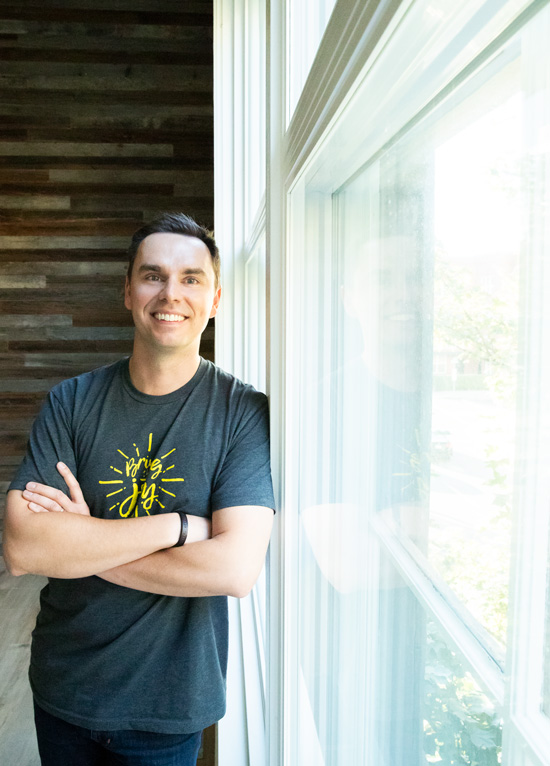
Kristen: This is like music to my best self ears.
Brendon: People love this book because it’s holistic. We were kind of the first to look at that highest level of success and prove the holistic stuff with data. That was a big Aha for me.
Creativity didn’t make the top six habits, which had me questioning, was I full of crap? Turns out I was wrong. I was teaching for years that creativity is absolutely necessary to perform at the highest levels, and it wasn’t true. It doesn’t mean creativity, and the habits of creativity, aren’t important to success. But with high performance, it wasn’t as strongly correlated as other things: clarity, energy, necessity, productivity, influence, courage. These were more important than creativity, and that blew my mind. I would’ve thought creativity would be in the top three, but that’s because I’m a creative. That’s why I did this study.
Kristen: What did you do with that information?
Brendon: We usually teach from our own values and our own perspective, but I want to use information to make sure I’m teaching accurately.
I think another juicy thing that got a lot of people’s attention — the controversy of the book — was how I take on the strengths-based movement. The message has always been: follow your strengths. The way that everyone spoke about and measured that was by asking: What are you inherently good at and inherently drawn to? What they measured in the strengths-based movement is what you’re born good at. It’s nature versus nurture and they were out on the nature side.
But we found in high performance that no one at the highest levels of high performance was born good at what they were doing. They had to practice and develop levels of discipline, and feedback, and coaching to get up there. Michael Jordan’s first sport wasn’t basketball.
I always ask people to consider, who do you need to develop into? Then determine the five skills you need to develop and build into that. The strengths-based camp is focusing on what makes you comfortable. They’re teaching people that if it doesn’t feel right and natural to you, then don’t focus there. No, no, no.
I tell people: Never ask the mission to bend down to your limited human strengths that you happen to be born with, because what you were equipped with at 15 is not what is necessary to excel with at 50. It’s not saying that strengths aren’t good, and interesting, and fun — but strengths were never correlated with enduring high performance. These habits were.
Kristen: I spoke to a random stranger in a restaurant yesterday about you and your work. This young man felt that he was stuck in a job, but he didn’t really know what he wanted to do, and he didn’t know how to get out of it. You were fortunate enough to learn these lessons so young in your life.
There are a lot of people that feel stuck. They are working in cubicles, working in jobs, grinding away on the treadmill. They’ve got a mortgage to pay, they’ve got kids, or whatever — but there’s still that little fire within.
What would you say to somebody in this position who wants more? What step could they take to move the needle an inch towards something, to rediscover who they are so that they can live, love, matter?
Brendon: I think you got it — it’s about moving the needle a little bit. It’s inching in, because the bad advice out there is quit and go rogue.
Kristen: …and just trust that the Universe will catch you.
Brendon: We got so flippant in our recommendations. We turned so black and white, and so extremist. I tell people if you’re really feeling that need for a shift — a major change to a new city or a new job isn’t where to start. What people really want is greater feeling of the day. They want to finish the day and have felt it. People don’t understand that this is what they are really seeking.
It starts with getting that young man to realize that what he really wants is to lay his head on the pillow and have felt the day. He wants to have felt himself imbue that day with energy, being conscious and responsible for his energy, and his reactions of the day so that it’s more intentional, and more his own.
Even when I was working at the cubicle job I didn’t love…I was in love with life. I was in love with my contributions there. I could create connections with people there even if I didn’t like my boss or circumstances. There is a way to imbue the day with so much feeling and meaning. You don’t need tricks and dancing bears — you need something different coming from within you first.
So, don’t try to objectify the purpose. Don’t try to objectify the thing that’s going to make you feel good. Start by asking, Okay, how can I make tomorrow feel more me? How can I bring my energy into the day?
Asking people to change their city or their job without first changing their thinking is just irresponsible. Asking people to change situations without first changing how they interpret situations is irresponsible. We have to teach people how to manage the stuff within first so that they’re actually capable of managing their new situations. Otherwise, they go repeat, repeat, repeat. Another bad relationship, another bad city, another bad job, and they’re just hopscotching and jumping to other bad things because they haven’t brought a new person to those things.
All of my work is about opening up those gates so that they can find that greater thing within. If you tap into that thing, the fatigue goes away. The doubt may still be there, but you win over the doubt. That’s where that young man has to start, versus trying to go figure out his whole life. I’m like, Dude, win tomorrow, then let’s get to your life at some point.
Kristen: How do you deal with doubt?
Brendon: It’s funny… I just don’t deal with it. It just flows in and then it flows out. It’ll come into my mind, but I don’t grab it. I don’t fight it. I don’t argue with it. I don’t try to wrestle it. It just kind of goes in and out.
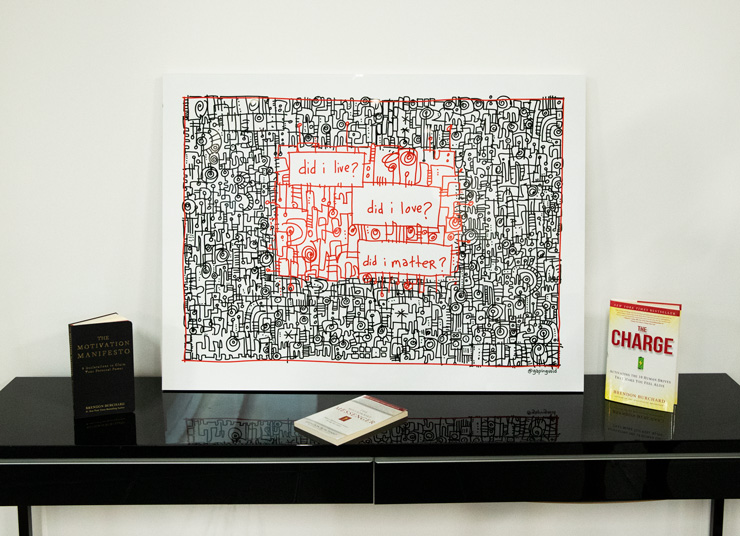
I recognize it as just this thing that will always come up. Fear is always going come up. It comes in, but I don’t stew on it. A lot of the misery of doubt is really just the rumination — It comes in, you grab it, and then you start validating why it’s true. So, I let the doubts come in and out; I don’t fight them, I don’t argue with them, I don’t spend a lot of time with them. I think meditation taught me to do that.
Kristen: Do you meditate every day?
Brendon: Yes, every day. I never miss. I do two types of meditation. One is a longer 20-minute meditation called ‘Release Meditation Technique’. It’s on my YouTube channel, and 2 million people have learned to do this. I go around the world and they’ll either say, “Your book changed my life,” or “Meditating changed my life.” I’m really proud of that.
Kristen: How long have you been doing it?
Brendon: Since 2009. And then I do what we call in High Performance Habits, ‘release tension and set intension’. It’s a simple practice to use throughout the day.
Let’s say I’m working on one task, such as a presentation, and I know I need to tend to an email, but I don’t just jump over. I finish the presentation. Then I push back from the computer. I release the tension in my body. I release the tension in my mind. I release the thoughts, and I just repeat the word “release” to myself for about two minutes: release, release, release… Then I ask, What’s my intention for this next activity? I clarify the intention, I open my eyes, and I start it.
That little ‘brain break’ as we call it, is everything to high performance, because most people think they burn out after 90 days of work. No, you burn out because you had no transition meditations. You had no transition rest. You never gave yourself a brain break.
So, you went 16 hours because you can — and then you crashed at night. Then you woke up and your brain was so tired you needed hundreds of milligrams of caffeine to recharge it because you failed to recharge throughout the day. If you recharge throughout the day, you have energy and productivity throughout the week. If you do that throughout the week, you have it throughout the month. If you do it throughout the month, you have it throughout the quarter, the year, the decade.
People ask, “Where does your energy come from?” I tell them it’s because I’m recharging all day. Our batteries are super low. If we were an electric vehicle, we wouldn’t get to go 200 miles and recharge; we’d get to go 20 miles and then we’d need to recharge. That’s where people mess up — they think their battery is so much bigger than it is, and they’re running on spent fuel.
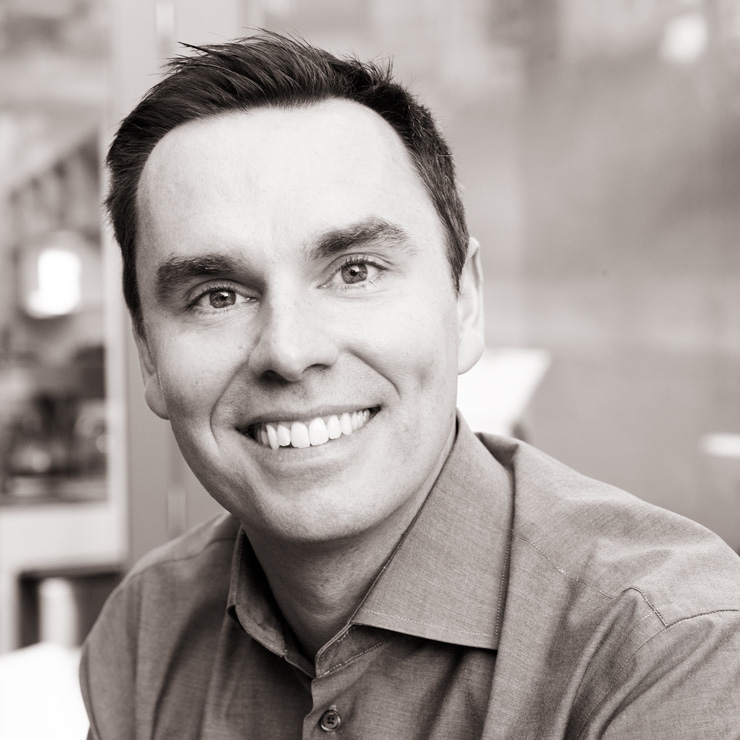
I think a huge part of it is mentality. A huge part of it is physiology. We have this program called High Performance Academy, and we teach four things that you have to master. One is psychology — that’s your mindset, your thoughts, your behaviors with others. Two is physiology — that’s where the holistic health and wellness stuff comes in. Three is productivity — that’s your mission, your output every single day, where you’re focusing. Four is people — that’s your people skills, your persuasion skills.
I bring that up because those first two are really what we’ve been talking about. With psychology you have to understand how to use your mind. With physiology you have to take care of yourself otherwise you’ll be burnt out. That’s why that little activity of release tension/set intension is recharging your physiology, but it’s also recharging your mind. People don’t recharge their mind all day. Maybe they refill their coffee cup, but they’re not refilling this cup [pointing to his head].
That’s why meditation and those little ‘brain breaks’ are so important. On average, the most productive people in the world take a break at 52 minutes. Sometimes that’s to go get water, take a walk around the office, go to the bathroom, walk around the block, or do some Vinyasa flow. Whatever it is, it’s important to take a break.
Kristen: How long are the breaks?
Brendon: It depends on the person. For some it might be just a two-minute reset. For me, it’s probably a 7-15-minute break every hour. When I sit down I use my phone: butt hits chair, timer hits 50 minutes, no matter what. If I’m writing a book and I’m in the zone, it’s all flowing, and that alarm rings at 50 minutes. I stop, stand up, break.
Authors always object, “But that ruins your flow.” My response is, your flow is going to come back, but if you just keep going, you’re going to burn out after three hours and I’m going to go for the next seven, because I recharge at that 50. That recharges everything. Most people’s phone is a tool of distraction. Mine is a tool of intention.
Kristen: Hold on a minute, I just saw a little Star Wars on your phone…
Brendon: I know. Super dorky. [laughing]
Kristen: So, it’s a bit of a distraction at times…
Brendon: Yes, that’s true. Social media can be troubling.
Kristen: I’m just calling you out on that. [laughing]
Brendon: It’s true, but you would also see I have alarms set up in my phone that go off several times throughout the day. And when the alarm comes up it has a label with my intention. I teach people to identify the three words they would love to live into — three words that would make them proud to be described as.
I’ll be going through the day, my phone buzzes — let’s face it, the phone buzzes, we look. I pick it up, it says, ‘Dynamic. Playful. Loving’. I use it to check in. Hmmm. I’m not being that right now. ‘Loving’ while I’m arguing with my wife. Jerk. It resets you — and we need cues to be our best.
That’s why your magazine is so important. It’s why personal development is so important. It’s why morning routines are so important. We need routines and cues to keep us at our best self, or we’ll just fall into the comfortable self, or homeostasis. We’ll fall into our lowest impulses. We’ll fall into judgment. We’ll fall into hate. We’ll fall into the easy, base human feelings and emotions that cause so many problems.
The reason people seek higher consciousness is because they know that being our best selves requires a different level of triggering. But most people just allow themselves to be whatever shows up.
Kristen: What are you most proud of?
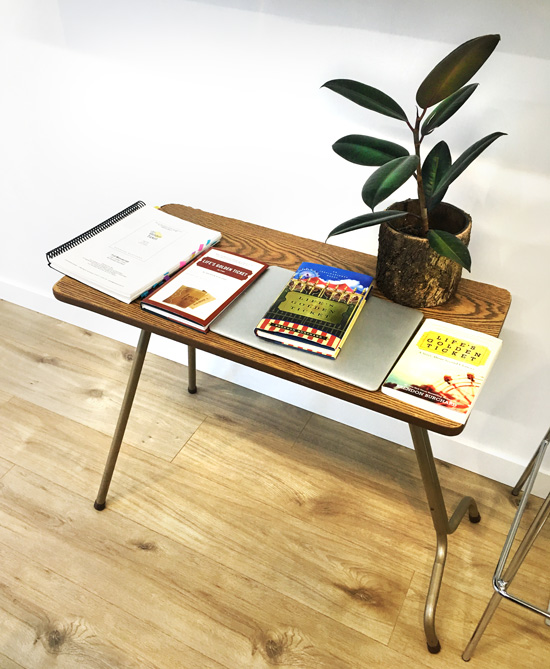
Brendon: I’m most proud that I’ve helped build the industry. That’s it. I’ve never spoken ill of anyone in this industry. When I came in, most seminar instructors were considered snake oil salesmen. People distrusted them — and thought that they would take advantage of you. Sure, there are some bad characters in the world — but I’ve always celebrated the good ones. I’ve always given them a platform at my seminars. I’ve given them a platform through my courses. I’ve given them a platform to share their voice. I’ve helped them launch their books and their courses. I’ve opened the field.
Your major contributions aren’t just what you achieve or what you contribute, but are about opening the field for other people.
I’ve put a ton of diversity on my stages because there’s a lot of diversity in the people I celebrate. All the different Facebook pages that we own — we built these platforms for people to share. I feel like I’m a little ripple effect, but I’m the ripple effect of everybody who came before me, and I’m trying to set the stage for everybody else to create their own ripple.
I’m happy with what I’ve achieved, but I’m happier that I’ve helped other people achieve a ton beyond me — others who have their own audiences, their own impact, and their own messages.
So, if you’re a leader at work, think about how you can set the stage for more people to achieve, even beyond you. It’s all about putting other people on platforms and celebrating them. Many of the people that work with us will go out there and they’ll dwarf my business or my following. And I’m always like, YES! When our YouTube clients get millions more followers than us, I’m like, YES! — because that’s building the future of the industry…and I’m going be gone one day.
It’s the mortality motivation. What are people going to talk about when I’m gone? What Brendon did? Or are they going to say, Brendon gave me a foothold. Brendon gave me a stage. Brendon gave me a shot. Brendon made me believe in myself.
I hope that’s my ripple effect. When I was coming up I didn’t have a lot of people mentoring me. I had a lot of people charging money. I had a lot of people maneuvering. But there wasn’t a lot of instruction, or scholarships, or platforms. I wish I had had that. So, I’m trying to give that to this next generation.
Kristen: Thank you.
This is a funny way to come full circle in this conversation with you sitting here in this t-shirt, because I feel like it really goes back to this version of you being comfortable in your own skin — the one that is creating this space for other people to be who they are — and to not be threatened that there’s a pitcher of water and it’s going to run out, that there isn’t enough room for all of us.
I am so grateful that you sat down with us today to allow us to explore this side of you. We know what you’ve accomplished, but this is the stuff that really excites me — and will impassion other people to do the same thing: to live, to love, to matter, and to be their best selves.
I’m so grateful for the seeds you’ve planted in my own business and my life, and for those I’m sure you’ve planted for our readers and listeners — and for bridging savvy business with sage, heart-felt wisdom.
Brendon: Thank you so much. It’s an honor to be here. Congratulations on everything you’re doing. It’s so awesome — I love it!
—
